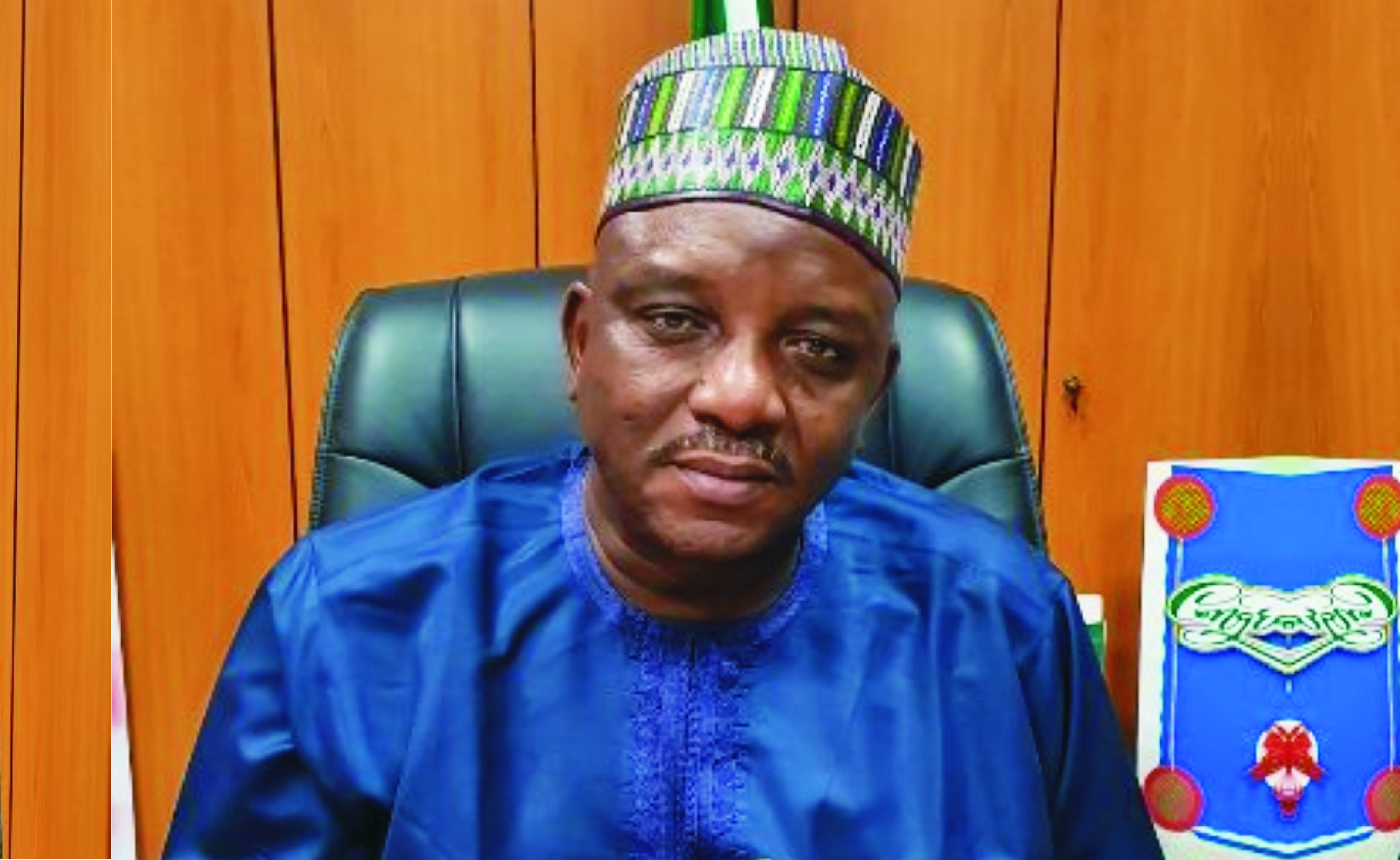Oil & Energy
FG, Working Out Equitable Electricity Tariffs – Minister

The Minister of Power, Engr. Sale Mamman says the ministry and stakeholders of the electricity market are working towards the establishment of a predictable and equitable regulatory regime from the perspective of rate payers and investors.
The minister, who had earlier raised the alarm over the widening liquidity gap in the Nigeria Electricity Supply Industry (NESI), said there was need to reinforce market structures and enhance transparency.
Speaking at the International Conference on Energy, Power Systems Operations and Planning (ICEPSOP 2020) in Abuja, Engr Mmman, said the ministry was already working hard to address the challenges by improving metering.
The theme of the conference was: “Empowering Micro Grif with Smart Grid Attributes Development in United States and Africa.”
He said the ministry of power, in collaboration with the Central Bank of Nigeria (CBN), Federal Ministry of Finance, and other relevant stakeholders, would consolidate a portfolio of activities deemed critical to the success of the electricity market.
He said: “The widening liquidity gap in the sector makes urgent, the need to reinforce market structures and enhance transparency. To address this challenge we are working hard to improve metering in general and in particular the use of smart meters as well as smart grids.
“In addition, the ministry is coordinating with the regulator, Ministry of Finance, the CBN, and other stakeholders to consolidate a portfolio of activities deemed critical to success.
These include refinement of commercial, technical, and regulatory components of transaction agreements; promotion of discipline; enforcement of contract effectiveness a day; establishing a predictable and equitable regulatory regime from the perspective of rate payers and investors.”
The minister said the ministry is focusing on electricity access for the teeming population through the use of mini-grid and micro-grid, noting that energy access has been a perennial issue particularly in sub-Saharan Africa.
Citing industry data, he said out of the 1.2 billion people without access to electricity, about half of them reside in the region.
He added that electrification rate in Nigeria stands at 55 per cent in urban and 36 per cent in rural communities, but assured that there are already measures in place to promote rural electrification.
Also speaking at the event, the chairman, Nigerian Electricity Regulatory Commission (NERC), Prof. James Momoh, said the conference was to provide the required environment to explore innovative regulatory approaches in promoting efficient and competitive service delivery involving deployment of smart and micro -grid technologies.
The chairman, House Committee on Power, Hon. Magaji Aliyu said as the country battles to generate, transmit and distribute electric power, the country has serious challenges reaching most of the rural areas.
He insisted that the issue of mini-grid development has become crucial in addressing the issue of power supply to remote areas of the country.
Oil & Energy
Bill Prohibiting Gas Flaring Passes 2nd Reading

The Bill for an act to prohibit gas flaring, encourage commodity utilisation, and provide for penalties and remedies for gas flaring violations has passed its second reading in the House of Representatives.
Sponsored by the Member representing Ikorodu Federal Constituency (APC, Lagos), Babajimi Adegoke Benson, the bill seeks to prohibit the flaring and venting of natural gas, except in strictly regulated circumstances, while encouraging the utilisation of gas resources to foster economic growth and energy generation.
The proposed legislation aims to mitigate the environmental, health, and economic impacts of gas flaring, aligning Nigeria’s oil and gas operations with international climate change commitments.
Offenders, who violate the provisions of the proposed law, would face stringent penalties, including fines of $5 per 1,000 standard cubic feet of gas flared and potential suspension of operations for repeat violations.
Leading debate on the general principles of the bill, Benson said gas flaring has plagued Nigeria for decades, resulting to severe environmental degradation, public health crises, and economic losses while it environmentally, contributes to greenhouse gas emissions, global warming, and acid rain, exacerbating climate challenges.
The lawmaker said public health impacts of the practice are equally dire, as pollutants from gas flaring cause respiratory and cardiovascular diseases, particularly among residents of communities close to flaring sites.
According to him, economically, flaring results in the waste of a valuable resource that could otherwise be harnessed for energy generation or exported to generate revenue.
Benson insisted that the bill was designed to address those issues while bringing Nigeria in line with global standards such as the Paris Agreement on climate change.
“The bill provides for a comprehensive prohibition of gas flaring except in emergencies or when explicitly authorised by the Nigerian Upstream Petroleum Regulatory Commission (NUPRC).
“Operators are required to submit and implement Gas Utilisation Plans, detailing how gas that would otherwise be flared will be captured, processed, or commercialised.
“Offenders, who violate these provisions, face stringent penalties, including fines of $5 per 1,000 standard cubic feet of gas flared and potential suspension of operations for repeat violations. Furthermore, the Bill ensures that communities affected by gas flaring are entitled to compensation and environmental restoration, creating a mechanism for redress.
“Transparency and accountability are integral to the enforcement framework of this Bill. Operators must submit regular reports on gas flaring incidents, which will be audited and made publicly available by the NUPRC. This approach ensures public oversight and stakeholder engagement, fostering trust and compliance.
“Nigeria’s adoption of this Bill positions the country to emulate such success, ensuring a balance between environmental stewardship and economic development.
“The implementation of this Bill will be overseen by the Nigerian Upstream Petroleum Regulatory Commission, which will monitor compliance through regular audits, enforce penalties, and facilitate gas utilisation projects in collaboration with operators and development partners.
“The Anti-Gas Flaring (Prohibition and Enforcement) Bill, 2024, is a timely and necessary response to one of Nigeria’s most pressing environmental challenges. Its provisions are both practical and forward-looking, addressing immediate concerns while laying the groundwork for a sustainable future.
“I urge all Honourable Members to support the Second Reading of this Bill as a demonstration of our collective commitment to environmental protection, public health and economic progress”, he added.
###
Oil & Energy
‘Indigenous Companies To Gain From Shell’s Contract Awards’

Oil major, Shell, has restated its commitment to the development of Nigerian companies through contract awards and scaling up of expertise.
Managing Director, Shell Nigeria Exploration and Production Company ((SNEPCO) Limited, Ron Adams, made the remark while speaking at the Opening Ceremony of the 13th edition of the Practical Nigerian Content forum held in Yenagoa, Bayelsa State, with the theme “Deepening the Next Frontier for Nigerian Content Implementation”.
Represented by the Manager, Business Opportunity, SNEPCO’s Bonga South-West Aparo Project, Olaposi Fadahunsi, he said several benefitting companies had taken advantage of the patronage to expand their operations and improve their expertise and financial strength.
Adams said, “Shell companies execute a large proportion of their activities through contracts with third parties, and Nigeria-registered companies have been key beneficiaries of this policy aimed at powering Nigeria’s progress”.
He emphasized that Shell companies in Nigeria also continued to develop indigenous manpower through scholarship programmes with over 3,772 undergraduate and 109 Niger Delta post graduate scholarships since 2016.
“As we speak, beneficiaries of the 13th edition of the Niger Delta Post Graduate Scholarship awards are pursuing their studies in the United Kingdom. The employability rate of the scheme is high with over 98% of the graduates who won the awards securing employment in the oil and gas industry, academia and Information Technology, among other sectors, within one year of completing their studies”.
He commended the Nigeria Content Development and Monitoring Board (NCDMB) for ensuring compliance with the Nigerian Content Act saying “Nigerian content will continue to be an important part of Shell operations”.
The four-day conference hosted by the Nigerian Content Development and Monitoring Board (NCDMB) and participating companies reviewed progress on the development of Nigerian content pertaining to the implementation of the Nigerian Oil and Gas Industry Development (NOGICD) Act since it was enacted in 2010.
Shell companies in Nigeria are among the more than 700 oil and gas entities that participated in the forum with a strong message of support for Nigerian companies, having awarded contracts worth $1.98 billion to the businesses in 2023 in continuing effort to develop Nigerian content in the oil and gas industry.
Oil & Energy
NNPC Begins Export From PH Refinery

The Nigerian National Petroleum Company Limited (NNPCL) has sold the first cargo of Port-Harcourt low sulfur straight run fuel oil (LSSR) to Dubai-based Gulf Transport & Trading Limited (GTT).
The company is expected to load the cargo in the coming days onboard the Wonder Star MR1 ship, signalling the commencement of operations at the plant and the exportation of petroleum products.
The ship would load 15,000 metric tons of the product, which translates to about 13.6 million litres.
Although the volume coming from the NNPC into the global market is still small, the development has the potential to impact the Very Low Sulphur Fuel Oil (VLSFO) benchmarks in the future, while changing the market realities for Atlantic Basin exporters into Nigeria and other regions.
The sulfur content of the export by NNPC stands at 0.26 per cent per wt and a 0.918 g/ml density at 15°C, according to Kpler, a data and analysis company.
The cargo was reportedly sold at an $8.50/t discount to the NWE 0.5 per cent benchmark on a Free on Board (FOB) basis.
Kpler reported that the development would help displace imports from traditional suppliers in Africa and Europe, as Nigeria’s falling clean product (CPP) imports are already decreasing, dragging imports into the wider West Africa region lower as well.
-
Niger Delta2 days ago
NACAT Inaugurates South-South Office In A’Ibom Against Corruption
-
Sports2 days ago
AFCON: Eguavoen, Emenike predict S’ Eagles’ chances
-
Business2 days ago
Bayelsa Recommits To Infrastructure, Sectoral Dev … Rakes In N227.185b From IGR
-

 News2 days ago
News2 days agoS’South Deputy Govs Pay Condolence Visit To A’Ibom Colleague
-

 Niger Delta2 days ago
Niger Delta2 days agoHYPREP Presents Scholarship Grants To 300 Ogoni Postgraduate Students
-
Niger Delta2 days ago
Environmentalist Makes Case For Oceans Preservation
-
Sports2 days ago
Aruna, renew rivalry at Singapore Smash 2025
-
Business2 days ago
Expert Tasks Government On Civil Maritime Security Unit

